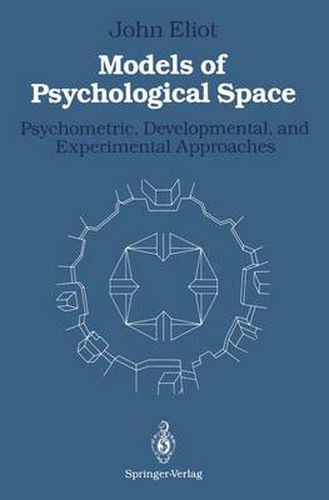Readings Newsletter
Become a Readings Member to make your shopping experience even easier.
Sign in or sign up for free!
You’re not far away from qualifying for FREE standard shipping within Australia
You’ve qualified for FREE standard shipping within Australia
The cart is loading…






This title is printed to order. This book may have been self-published. If so, we cannot guarantee the quality of the content. In the main most books will have gone through the editing process however some may not. We therefore suggest that you be aware of this before ordering this book. If in doubt check either the author or publisher’s details as we are unable to accept any returns unless they are faulty. Please contact us if you have any questions.
Models of Psychological Space begins the reformulation of the construct of psychological space by bringing together in one volume a sampling of theoretical models from the psychometric, developmental, and experimental approaches. The author also discusses five general issues which cut across these three approaches; namely, age-related differences, sex-related differences, trainability, imagery, processing solutions, and the effect of stimulus dimensionality upon spatial performance. Models of Psychological Space provides an overview of a significant construct which has many researchable ideas, and which should be of interest to scholars from a wide range of disciplines.
$9.00 standard shipping within Australia
FREE standard shipping within Australia for orders over $100.00
Express & International shipping calculated at checkout
This title is printed to order. This book may have been self-published. If so, we cannot guarantee the quality of the content. In the main most books will have gone through the editing process however some may not. We therefore suggest that you be aware of this before ordering this book. If in doubt check either the author or publisher’s details as we are unable to accept any returns unless they are faulty. Please contact us if you have any questions.
Models of Psychological Space begins the reformulation of the construct of psychological space by bringing together in one volume a sampling of theoretical models from the psychometric, developmental, and experimental approaches. The author also discusses five general issues which cut across these three approaches; namely, age-related differences, sex-related differences, trainability, imagery, processing solutions, and the effect of stimulus dimensionality upon spatial performance. Models of Psychological Space provides an overview of a significant construct which has many researchable ideas, and which should be of interest to scholars from a wide range of disciplines.